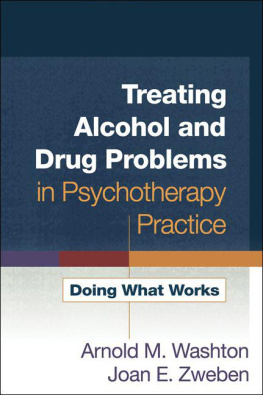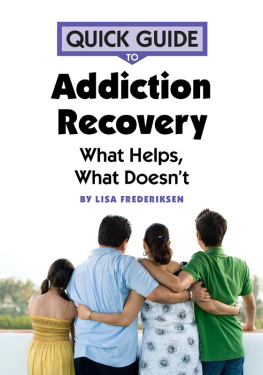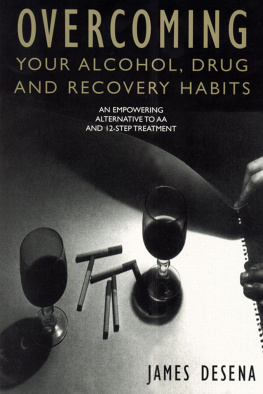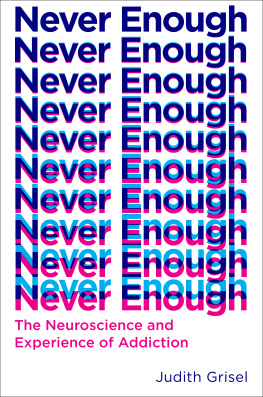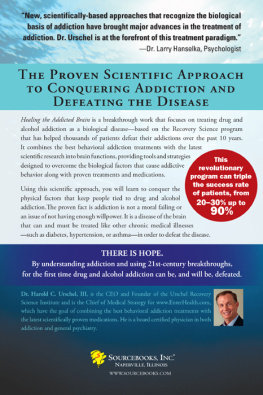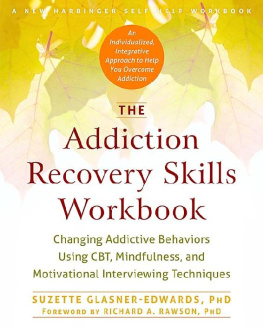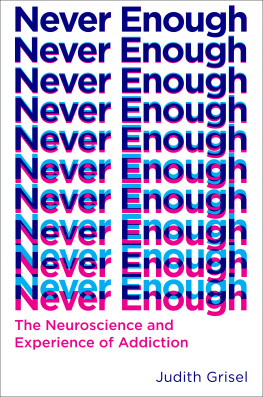MANY PEOPLE HELPED TRANSFORM this book from an idea into a reality, and we are grateful to each of them:
Our editor, John Michel, for skillfully shepherding the manuscript through its many incarnations, and for his patience and support;
Debra Elfenbein, production editor, for her conscientious effort in producing the best manuscript possible;
Larry Ashmead, executive editor, for having the confidence in us to support this project from beginning to end;
Connie Clausen, our agent, for seeing the merits of this book when it was just an idea and four pages of notes;
Kate Davis for her editorial skill, friendship, and humorall of which proved invaluable to the completion of this project;
Erica Lindsay for her late-night readings of endless drafts, helpful feedback, and, most important, for sharing the vision;
Harris Breiman of The Mustard Seed Center for Healing in Woodstock, N.Y., for making key contributions to the manuscript and bringing to it his clarity and wisdom;
Rebecca Daniels, Carol Perkin, and Jane Letus for their various contributions to the research and Joan Munkacsi for her work on an early draft;
And a very special thanks to the many recovering people who agreed to be interviewed for this book so that others might identify and gain hope.
I am grateful to my childrenTala, Danae, and Jacobfor the inspiration and joy they add to my life.
A. M. W.
I wish to thank my family for their unwavering support and enthusiasm, in particular Marcia and Mary Beth;
Leona Trinin, for her wit, love, and reality testing, all of which has helped me write books and keep my sense of humor;
My partners in Reelizations, Tom Colello and Bart Friedman, for their patience while I worked on this book;
Finally, I thank Francesca, Elena, Howard, Nedra, Susie, and the many other friends, too numerous to name, who haveall in their own wayhelped to provide the sense of community so necessary to thrive, create, and carry on.
D. B.
NOT ALL ADDICTIONS ARE EXACTLY the same. Important differences among them do exist. Chemical addictions, for example, uniquely alter the physical functioning of the human brainunlike most other addictions. Despite these differences, however, we see great value in identifying the common threads that bind together seemingly different types of addictions. Addictions can look very different on the surface but can be generated by many of the same root causes underneath. We have chosen, therefore, to avoid the current academic debate about whether certain types of habitual behaviors are truly addictions or are better classified as compulsions. We view the similarities among different forms of addictions as being more important than the differences, at least in terms of what causes addictions and how to deal with them effectively. This book is about the similarities.
GIVEN THE GENDER LIMITATIONS of the English language, it is a challenge to write without a gender bias. Every time we refer to an indefinite person (such as the addict) we are forced to chose between using the masculine pronoun he, the feminine pronoun she, or the awkward and cumbersome combination he or she.
Our solution has been to alternate pronouns. With this approach, we hope to allow the maximum number of readers to benefit from the material presentedsince addiction itself knows no bias.
This book contains observations about the causes and methods of recovery from addictions. Because each situation involving addictive behavior is unique however, the reader should consult a qualified health-care professional on questions specific to the individual to insure adequate evaluation and appropriate care. This book is not intended to substitute for professional services and should not be used in place of such services.
The names and identifying details of those individuals interviewed for this book have been changed to protect anonymity.
Introduction:
This Is Not a Quick-Fix Book
THIS IS NOT A QUICK-FIX BOOK. If youre looking for an easy, fast answer to addiction, you will not find it here.
Do you feel let down, or even cheated? Did you buy this book thinking that maybe we could provide you with an instant cure for your or someone elses addiction? If so, that could be part of the problem: a limited understanding of addiction and mistaken beliefs about how it can be overcome. Many people think that what the addict needs is greater self-control: If she could just try harder, surely she could stop drinking (or overeating, or getting hooked on unavailable men, or using cocaine). What she needs is willpower.
Nothing could be further from the truth. What prevents an addict from recovering, in fact, is relying on willpower alone. Using willpower, you can get off an addictionfor a week, a month, or even longer. But sooner or later, when life gets stressful, youre very likely to relapse. Or, you might conquer one addiction with willpoweronly to find yourself with a new one, as when Sally stops drinking, but starts abusing prescription drugs; or when Howard stops eating compulsively, but starts using cocaine. In other words, you can use willpower to get rid of the symptom of your addiction, but youll still be vulnerable to relapse or to new compulsive behaviors until you make otherinternalchanges in yourself.
Willpower isnt enough because it springs from the very thinking that causes addictionthe belief that there is a quick-fix to everything and that if we just exert enough control we can avoid all pain and discomfort. Since weve all grown up in a society that relies heavily on quick-fix solutions, its not surprising that when we try to break an addiction we approach it the same way. We think, Theres got to be an easy way.
Using willpower alone to break an addiction is whats called first-order change. It never works very well because the solution comes out of the same mindset as the problem. When an addict has already lost control over her use of a mood-changer, how can yet another attempt at controlling it be a lasting solution?
In second-order change the problemand the solutionare reframed within a different set of concepts and beliefs. Second-order change for addiction means not trying harder to control the addiction, but throwing up your hands and admitting defeatadmitting that you are not in control.
The addict finds this hard to swallow. But that sounds like the opposite of what I should do. Youre telling me to give up. We are, because thats what works. Trying harder and harder to be good enough, to be accepted, to perform better, to look like youre managing, to be normal is part of what makes a person vulnerable to addiction to begin with. So its only when you stop trying , accept yourself right where you are (even if thats addicted), and admit that youre not in control, that you can begin to regain control. Its a paradox, but there are many in recovery.


